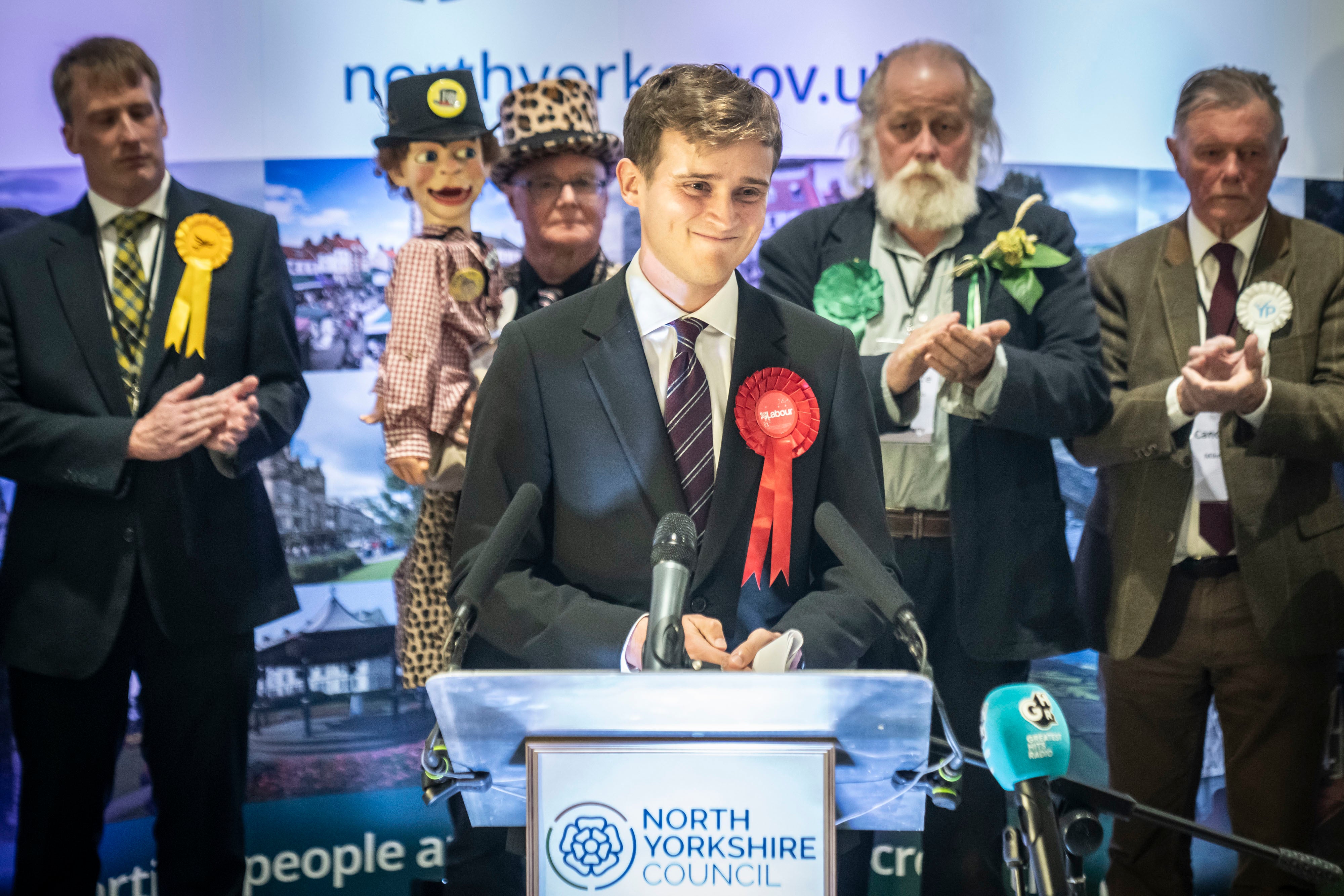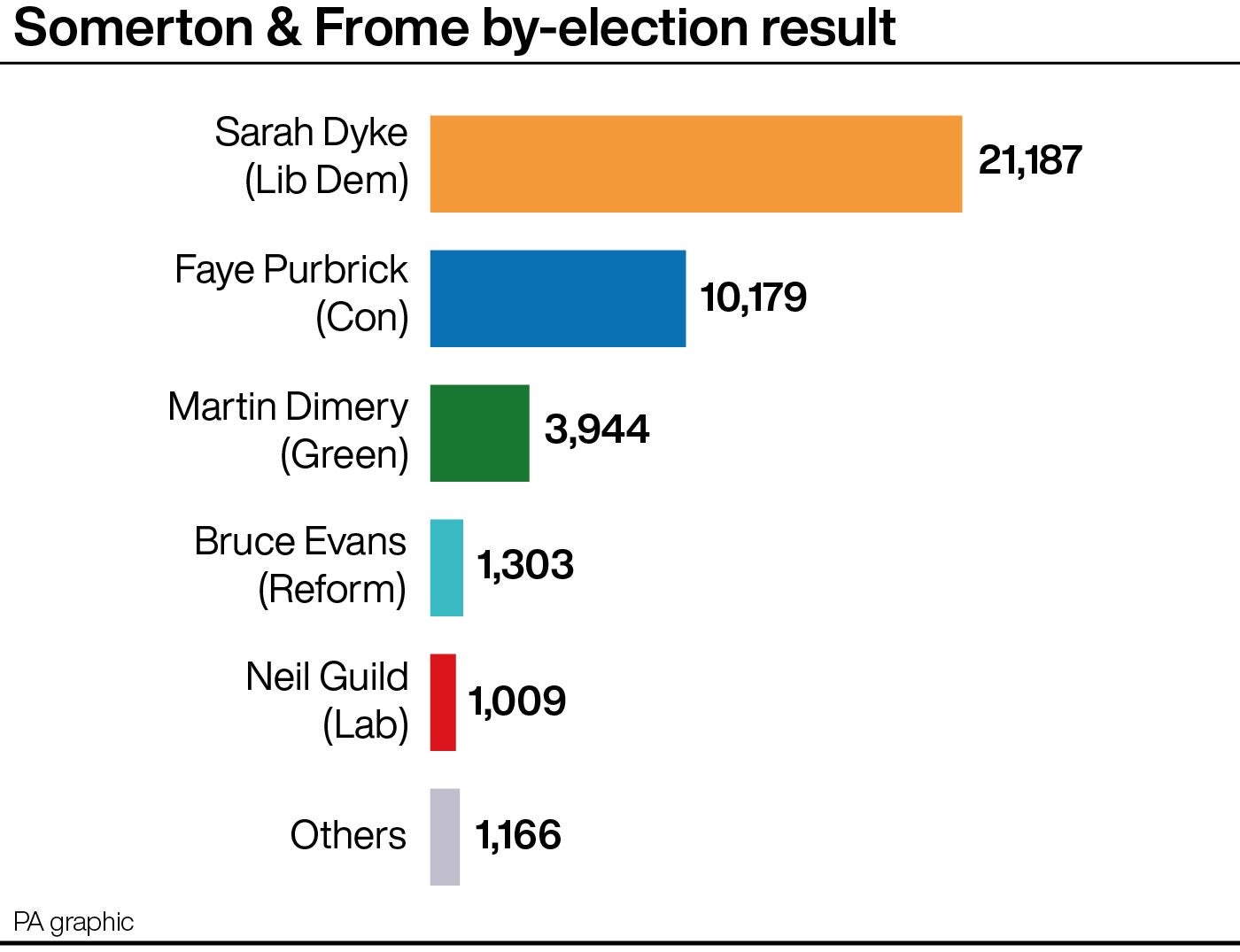Sunak will hold on to Uxbridge by-election result as a drowning man clings to driftwood
In Boris Johnson’s old seat, Tory voters’ hatred for the Ulez – an unusually persuasive local factor – outstripped their gripes with the government, writes Sean O’Grady


So, not for the first time, the Labour Party has somehow contrived to snatch defeat from the jaws of victory. Whatever the merits of expanding the London ultra-low-emission zone (Ulez) to the outer suburban districts such as Uxbridge and South Ruislip, it is evidently itself politically noxious. It pushed what was expected to be a more substantial swing to Labour right back, and let the magic words “Conservative hold” appear on our screens as the Tories nicked it at the death.
It’s hard to believe. It will overshadow (at least in the Tory press) Labour’s astonishing assault on Selby and Ainsty, and the Lib Dem landslide in Somerton and Frome.
Uxbridge, though, will be clung to by Rishi Sunak like driftwood by a drowning man. The more the Tory campaign focused on the £12.50-per-day charge for drivers of older cars, the more the Labour candidate suffered by association with his party’s mayor of London, Sadiq Khan, and the Ulez.
Follow our live blog for latest updates on the Uxbridge, Selby and Somerton by-elections
Perhaps Boris Johnson’s newspaper column criticising the policy – which he introduced himself when mayor – might have changed the minds of a few of his former constituents. Whatever. What Labour needs to concentrate on now is whether Khan’s Ulez policy needs to be reformed, for fear of losing the mayoralty itself next May if not the general election. It does rather feel like Labour, collectively, messed up this week. I’m not that surprised that Keir Starmer was quoted recently as saying he didn’t like tree-huggers much.
In any case, local factors such as those that prevail in parts of outer London don’t mean that the Tories are nailed on for a fifth term. Often general elections display wide varieties in swing both across and within regions, and it’s a fair bet that Labour will be at a disadvantage in outer London generally because of Ulez. On the other hand, to give one example, Labour should see a higher-than-average swing from the SNP next time. The by-elections since 2020 in Chester, Stretford and West Lancashire suggest a healthy position in the North West for Labour.
Even so, by inadvertently creating the chance for a propaganda coup for the Conservatives, Labour has handed the Tories a “fightback” narrative and given them hope, however fragile and ill-founded. Starmer needs some more lessons from Blair about spin – and, indeed, about policy discipline.
The reality, though, away from the hype the Tories will apply to the Uxbridge result, is that things are still grim for the prime minister. Just bear in mind that the swing of 6.7 per cent in Uxbridge would be sufficient to return a Labour government on the cusp of a tiny overall majority.
As the politicians always like to say, these are real voters casting real votes in real ballot boxes. As it happens, they are broadly consonant with the opinion polls, notwithstanding Uxbridge. The by-election results are also on trend with what we saw in the local elections in May, and indeed in the run of by-elections during this parliament. The omens for Sunak and his party remain grim.

For the Tories, the most depressing aspect of the contests has to be that they lost ultra-safe Selby to Labour, giving up a majority of 20,137, the largest Labour has ever demolished in a by-election. In other words, rather than disenchanted voters switching to the usual halfway house of the Liberal Democrats, Greens, or one of the nihilistic groups on the hard right, they defected straight to Labour – and in volume. A big Con-to-Lab switch is actually a very rare thing in British by-election history.
The swings to Labour in this parliament, in all the by-elections, have been fairly high by historical standards, and over the last year have run at about 10 per cent plus in a variety of seats (even though, until now, Labour has only managed to actually gain one seat from the Tories, which was the very marginal Wakefield). Now that a swing of 23.7 per cent has been registered in Selby (which was within the Tories’ nominally safest 100 seats), there is obviously some real hope for Labour gathering momentum nationally.
If something like that were achieved next year, it would mean a Labour government with a comfortable majority. This is the kind of swing that New Labour enjoyed back in the 1990s – and we know what happened next.
Nor can Sunak be pleased to see the revival of the Liberal Democrats in their old heartlands such as Somerton, a seat they held between 1997 and 2015. They’ve now won four by-elections in this parliament, recalling Paddy Ashdown’s triumphs in the 1990s, and on stonkingly consistent and comparable swings – 34 per cent in North Shropshire, 29.9 per cent in Tiverton, 25.1 per cent in Chesham, and now 29 per cent in Somerton and Frome.

With such clear evidence of anti-Tory tactical voting by Labour and Lib Dem voters in these by-elections – plummeting down to negligible levels for no other reason than this conscious switching to help the better-placed side – the Lib-Lab “pincer movement” is on again. At the next election, Ed Davey’s party thus seems set to punch far above its weight, and its 11 per cent national poll showing – thanks to a little help from Labour voters.
Some Tories also stayed at home in all three seats, but there’s no reason to believe that the voters will necessarily return. Many Tory voters are so disillusioned by what’s happened over the last few years that they’ll also register their displeasure by simply abstaining at the general election – because they’ve lost patience and want to punish the Tory party (and ministers may suffer especially badly in such a scenario). In Uxbridge, their hatred for the Ulez – an unusually persuasive local factor – outstripped their gripes with the government.
We’re not mid-term any more, and there’ll be an election in about a year’s time. So there isn’t much scope for Sunak to turn things around, and the combination of the economy, the legacies of austerity, Brexit, Partygate and Liz Truss’s mini-Budget is visibly overwhelming him. Resentment about the Ulez isn’t going to save him.

It doesn’t really matter what the Tories say or do if the voters have stopped listening. The mood for change is running hard. People are hardly in love with Labour, still less with Starmer, who they think is dull – but then again, Sunak’s personal ratings have been slipping, and he isn’t that charismatic himself. More by-elections will happen in the coming months – prospectively in Mid Bedfordshire, Tamworth, and Rutherglen – and they will test his mettle and luck still further. The big issue in Mid Bedfordshire will be whether Labour and the Lib Dems split the opposition vote and let the Tories hang on to another seat.
“Time for a change” is one strong driver of current trends, but evidently, so is “Get the Tories Out” – the revulsion at the incumbent party now running so deep that traditional affiliations loosen readily and radically. In 2024, the Tories could easily fall lower than the historic rout in 1997, which was, in turn, the worst since the Great Reform Act of 1832, at the dawn of modern politics.
The most unlikely of places will elect Labour MPs. Cabinet ministers will tumble, as Michael Portillo did in ’97. The Tories will soon enough become a weakened rump, rapidly descending into civil war. The noises you hear emanating from these by-elections aren’t just howls of Tory anguish but the early tremors of the greater political earthquake yet to come.
Join our commenting forum
Join thought-provoking conversations, follow other Independent readers and see their replies
Comments
Bookmark popover
Removed from bookmarks